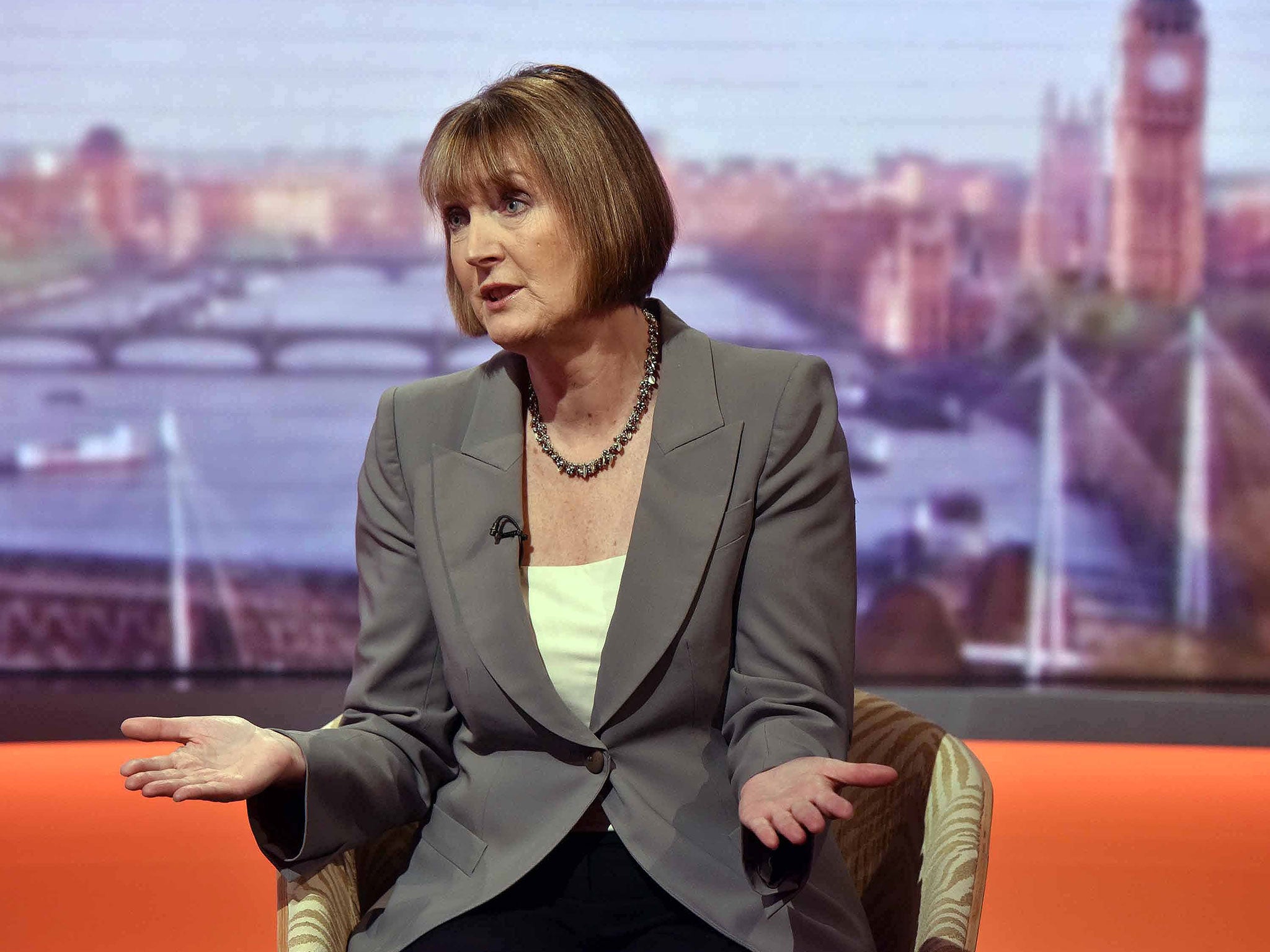General Election 2015: Ed Miliband puts 'economic credibility' at heart of Labour manifesto with pledge of no extra borrowing
Miliband takes on his rivals with a vow to ‘protect the nation’s finances’, while accusing the Tories of failing to explain how £8bn NHS pledge will be funded

Your support helps us to tell the story
From reproductive rights to climate change to Big Tech, The Independent is on the ground when the story is developing. Whether it's investigating the financials of Elon Musk's pro-Trump PAC or producing our latest documentary, 'The A Word', which shines a light on the American women fighting for reproductive rights, we know how important it is to parse out the facts from the messaging.
At such a critical moment in US history, we need reporters on the ground. Your donation allows us to keep sending journalists to speak to both sides of the story.
The Independent is trusted by Americans across the entire political spectrum. And unlike many other quality news outlets, we choose not to lock Americans out of our reporting and analysis with paywalls. We believe quality journalism should be available to everyone, paid for by those who can afford it.
Your support makes all the difference.Ed Miliband is set to promise to put economic credibility at the heart of Labour’s programme for government as tensions rise in the closest general election campaign in a generation.
He will try to break with Labour’s past – and will risk disappointing his party’s left wing, as well as potential allies in a hung parliament – with a guarantee that every policy commitment will be fully funded and not require borrowing.
Labour will be the first major party to publish its manifesto and will be followed by the Conservatives and on Wednesday by the Liberal Democrats.
With the polls consistently pointing to a hung parliament, party strategists will be desperate to break the deadlock in the battle for votes with their policy offerings. The Tories signalled yesterday that they would cut inheritance tax to allow parents to leave a family home worth up to £1m to their children, but the scheme came under fire because it would only benefit 10 per cent of estates.
Mr Miliband hopes to close the Tories’ long-standing lead on economic competence by insisting his party would not pile up debts. He will admit that the manifesto is different from previous Labour prospectuses which contained an array of spending commitments.
Speaking at its launch in Manchester, he will say: “The very start of our manifesto is different to previous elections. It does not do what most manifestos do. It isn’t a shopping list of spending policies.
“It does something different. Its very first page sets out a vow to protect our nation’s finances, a clear commitment that every policy in this manifesto is paid for without a single penny of extra borrowing.”
The party will place heavy emphasis today on increasing health spending, boosting childcare for working parents of three- and four-year-olds and cutting class sizes in infants schools. It will detail promises to freeze gas and electricity bills until 2017, to raise the national minimum wage to £8 an hour and to outlaw exploitative zero-hours contracts.
Labour will commit itself to a “budget responsibility lock”, guaranteeing that it will cut the deficit every year and will not make spending promises which can only be afforded by borrowing. The first sentence of its first Budget in power would read: “This Budget cuts the deficit every year.”
Labour sources said Mr Miliband would not compromise on the principle of pursuing “strong, fair fiscal rules” in government, suggesting it would be a “red line” for him in any negotiations with other parties in a hung parliament.

The party announced yesterday it would push through immediate legislation if it wins the election to raise more than £7.5bn a year by tackling tax evasion and avoidance. The Tories responded by saying the promise carried little credibility because of the last Labour government’s failure to act on the problem. Mr Miliband will accuse the Conservatives of throwing around “unfunded, unfair and unbelievable” spending promises without knowing where the money is coming from to pay for them. He will point to a Tory commitment to increase health spending by £8bn and to freeze rail fares in real terms at an estimated cost of £1.8bn.
Harriet Harman, Labour’s deputy leader, said voters would not believe the NHS promise. She said: “People know they find it harder to see their GP since the Tories came into government, they know that they wait longer in accident and emergency and that waiting lists are starting to grow.”
The Chancellor, George Osborne, said: “It’s clear Labour’s manifesto will be a dangerous cocktail of higher taxes and more debt that will cost jobs and cut incomes. Labour must now answer two questions: which taxes are they planning to increase to pay for it? And what is Ed Miliband willing to trade in the event he needs to be propped up by the SNP?”
The Conservatives will be anxious to achieve some momentum in the polls following a week which saw them on the back foot over Labour’s commitment to scrap the “non-dom” tax status and criticised for mud-slinging after a vitriolic personal attack on Mr Miliband by the Defence Secretary, Michael Fallon.
The latest polls have suggested a slight slip in Tory support leaving them two points behind Labour, which would put Mr Miliband on course to head the largest contingent of MPs in a hung parliament.
The party’s strategy was criticised by the former Defence Secretary, Liam Fox, who said it should be 10 points ahead of Labour because of the success of the economy. He argued the Conservatives needed to “shout Tory values from the rooftops” and project a message that contains a “moral dimension, a revivalist spirit and a passion for libertarian conservatism”.
Some MPs are pressing for the campaign to strike a more positive note. In response, the Tory leadership points to announcements on seven-day access to hospital services, pledges to create two million jobs and three million apprenticeships and to give employees three days’ paid leave to do voluntary work.
The Independent has got together with May2015.com to produce a poll of polls that produces the most up-to-date data in as close to real time as is possible.
Click the buttons below to explore how the main parties' fortunes have changed:
All data, polls and graphics are courtesy of May2015.com. Click through for daily analysis, in-depth features and all the data you need. (All historical data used is provided by UK Polling Report)
Join our commenting forum
Join thought-provoking conversations, follow other Independent readers and see their replies
Comments